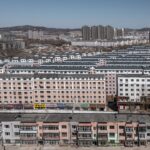Lithuanian President Gitanas Nauseda has publicly acknowledged that it was a mistake to allow a “Taiwan representative office” in its capital Vilnius, which is in direct violation of the one-China principle.
In an interview with a local radio station, Nauseda appears to be passing the buck for what could possibly be the biggest diplomatic crisis the Baltic nation has faced, suggesting that “it was its name” that was a mistake and that the move “was not coordinated with me.”
Given the internal politics of Lithuania, with Nauseda reportedly having a tense relationship with Lithuanian Prime Minister, Ingrida Simonyte, who pushed for the opening of the office, it remains unclear how much weight the words of the Lithuanian President carry on the country’s diplomatic policymaking. Simonyte has continued to adopt a hostile approach toward China, barking loud about fabricated claims of “economic coercion” by China.
Still, the remarks from Nauseda showed a crack in Lithuania’s provocative diplomatic approach as the country faces mounting pressure and potentially severe political and economic consequences from its mistake. The reasons behind that crack may be the power of China’s vast market, the rapidly evaporating credibility of the US and the lack of concrete support from allies.
Lithuanian political leaders made a calculated move in antagonizing China to appease Washington, hoping that the US would throw some carrots their way. But what US officials offered was nothing more than lip service, even after Lithuanian officials repeatedly pushed the narrative of “economic coercion.”
Chinese officials have never announced any economic measures against Lithuania despite its harsh criticism toward the country’s vicious act. Lithuanian products were never removed from official customs lists, sources told the Global Times in multiple reports, contrary to what some Lithuanian officials and foreign media outlets claimed. The claims of economic coercion are imagined by these forces that obviously have a guilty conscience and an inclination to play the victim.
However, that does not mean there were no economic implications for Lithuania’s action. Given the tense diplomatic relations, many Chinese companies and industry groups were understandably considering alternatives and contingency plans to cope with potential risks. Such considerations do not require any official guidance because any successful business would proactively assess market risks and make corresponding plans.
EU businesses, including those in Germany, were also evidently considering contingency plans. Last month, the German-Baltic Chamber of Commerce reportedly warned Vilnius that German firms might need to shut down their facilities in the country unless there was “a constructive solution to restore Lithuanian-Chinese economic relations.”
While Nauseda’s remarks were more about Lithuanian internal politics, they also show growing unease and concern within the country about potential diplomatic and economic ramifications of the decision. The country is set to pay a heavy price for the mistake of its political leaders in making Lithuania an attack dog of the US unless it actually moves to correct its mistake.
Lithuanian President Gitanas Nauseda File Photo: VCG




